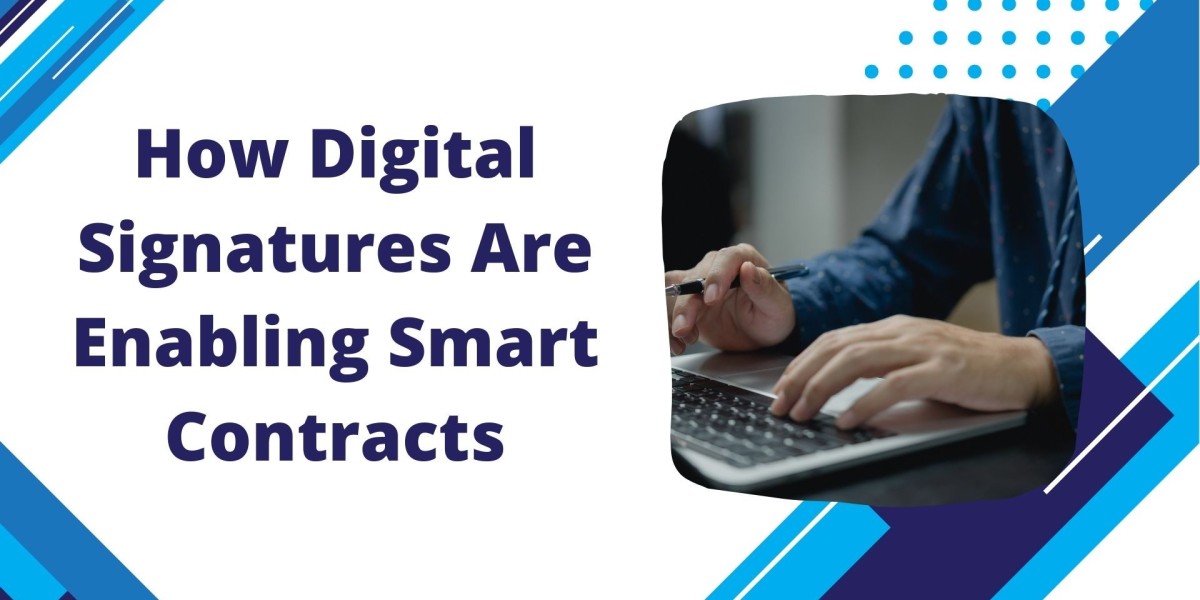Digital signatures, a technological advancement in the field of cryptography, have emerged as a critical tool in this context. They not only ensure the integrity and authenticity of digital documents but also play a pivotal role in enabling smart contracts - self-executing contracts with the terms of the agreement directly written into code. This article explores how digital signatures are enabling smart contracts and revolutionizing the way agreements are made and enforced in the digital world.
Understanding Digital Signatures
Before diving into the role of digital signatures in smart contracts, it’s important to understand what digital signatures are. A digital signature is a mathematical scheme used to verify the authenticity and integrity of a digital message, document, or transaction. It’s the digital equivalent of a handwritten signature or a stamped seal but offers far more inherent security.
Digital signatures rely on public key cryptography, also known as asymmetric cryptography. In this system, each user has two keys: a private key, which is kept secret, and a public key, which is shared openly. The private key is used to create a digital signature, while the public key is used to verify it. When someone signs a document digitally, they use their private key to create a signature that is uniquely tied to both the document and the signer. Anyone with access to the signer’s public key can verify the signature, ensuring that the document has not been altered since it was signed and that the signature is indeed from the claimed signer.
What Are Smart Contracts?
Smart contracts are self-executing contracts where the terms of the agreement are written directly into lines of code. These contracts automatically enforce and execute the terms of the agreement when predefined conditions are met, without the need for intermediaries. Smart contracts run on blockchain platforms, which are decentralized and immutable, meaning that once a smart contract is deployed, it cannot be altered. This makes them incredibly secure and trustworthy.
The concept of smart contracts was first proposed by computer scientist Nick Szabo in 1994, but they gained widespread attention with the advent of blockchain technology, particularly with the launch of the Ethereum blockchain in 2015. Ethereum allows developers to create and deploy smart contracts that can handle a wide range of applications, from financial transactions to supply chain management.
The Role of Digital Signatures in Smart Contracts
Digital signatures are integral to the functioning of smart contracts for several reasons:
Authenticity and Verification:
Digital signatures ensure that the parties involved in a smart contract are who they claim to be. When a party signs a smart contract digitally, they use their private key, which generates a unique signature. This signature can be verified using their public key, ensuring that the signer is legitimate and that the contract has not been tampered with. This level of security is crucial in the decentralized environment of blockchain, where trust between parties is established through cryptographic means rather than centralized authorities.
Non-Repudiation:
Non-repudiation is the assurance that someone cannot deny the validity of something they have signed. In the context of smart contracts, digital signatures provide non-repudiation by binding the signatory to the contract. Once a party signs a smart contract with their digital signature, they cannot later claim that they did not sign it or that the signature was forged. This provides a strong legal and technical foundation for enforcing the terms of the contract.
Automation and Self-Execution:
Smart contracts are designed to execute automatically when predefined conditions are met. Digital signatures play a key role in triggering these executions. For example, in a smart contract for a financial transaction, the release of funds could be contingent on the digital signatures of both parties confirming the completion of certain conditions. Once the required signatures are verified, the contract can execute the transaction without the need for manual intervention, reducing the potential for errors and delays.
Security and Integrity:
One of the most significant advantages of digital signatures is their ability to ensure the integrity of data. In a smart contract, any alteration to the contract’s terms after it has been signed would invalidate the digital signature. This means that once a smart contract is signed, it is immutable, ensuring that all parties are bound to the original terms. This level of security is particularly important in financial contracts, where even minor alterations could have significant consequences.
Decentralization and Trustlessness:
Blockchain technology is inherently decentralized, meaning that no single entity has control over the entire network. In such an environment, trust is established through cryptographic proof rather than reliance on third parties. Digital signatures are a cornerstone of this trustless system, allowing parties to enter into agreements without needing to trust each other personally. Instead, they trust the cryptographic mechanisms that underpin digital signatures and smart contracts.
Practical Applications of Digital Signatures in Smart Contracts
Digital signatures and smart contracts have a wide range of practical applications across various industries:
Finance and Banking:
In the financial sector, smart contracts can be used for automatic payments, loans, and derivatives. For example, a smart contract for a loan agreement could automatically release funds when the borrower signs the contract with a digital signature, and it could enforce repayment terms based on predefined conditions.
Supply Chain Management:
In supply chain management, smart contracts can automate and streamline processes such as tracking shipments, verifying the authenticity of goods, and releasing payments. Digital signatures ensure that each party in the supply chain—manufacturers, suppliers, and distributors—can verify the authenticity of transactions and the integrity of documents.
Real Estate:
Smart contracts are transforming the real estate industry by automating processes such as property transfers, lease agreements, and escrow services. Digital signatures ensure that all parties involved in a real estate transaction can securely sign contracts, with the smart contract automatically transferring ownership and releasing funds once all conditions are met.
Legal Agreements:
Legal contracts are one of the most obvious applications for smart contracts. Digital signatures allow parties to sign legal agreements remotely and securely, with the smart contract automatically enforcing the terms. This can reduce the need for lengthy legal processes and intermediaries, making legal agreements more efficient and cost-effective.
Healthcare:
In healthcare, smart contracts can be used to manage patient records, handle insurance claims, and ensure the secure transfer of medical data. Digital signatures ensure that only authorized parties can access and sign off on sensitive information, maintaining patient privacy and data security.
Challenges and Future Outlook
While digital signatures and smart contracts offer numerous benefits, they are not without challenges. One of the primary challenges is the legal recognition and enforcement of smart contracts and digital signatures across different jurisdictions. While many countries have laws that recognize digital signatures, the legal status of smart contracts is still evolving.
Another challenge is the complexity of creating and implementing smart contracts. Writing smart contracts requires a deep understanding of both legal principles and programming, which can be a barrier to adoption for some organizations. Additionally, the immutability of smart contracts, while a strength, can also be a weakness if errors or unforeseen circumstances arise, as the contract cannot be easily modified once deployed.
Despite these challenges, the future of digital signatures and smart contracts is promising. As blockchain technology continues to evolve, we can expect to see even more sophisticated smart contracts that leverage digital signatures to enable new forms of automation and trust in the digital world. With ongoing advancements in cryptography and legal frameworks, digital signatures and smart contracts are set to become even more integral to the way we conduct business, manage assets, and enforce agreements in the digital age.
Suggested Read – Class 3 Digital Signature Certificate For eTender
Conclusion
Digital signatures are a fundamental component of smart contracts, providing the security, authenticity, and automation needed to make these self-executing agreements viable and effective. As more industries adopt blockchain technology and smart contracts, the role of digital signatures will continue to grow, enabling new possibilities for secure, efficient, and trustworthy digital transactions. While challenges remain, the potential benefits of digital signatures and smart contracts are immense, paving the way for a future where agreements are made and enforced seamlessly in the digital realm.










